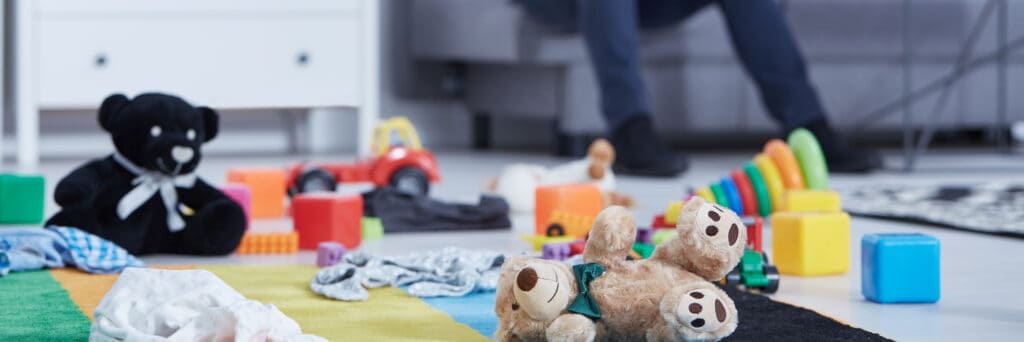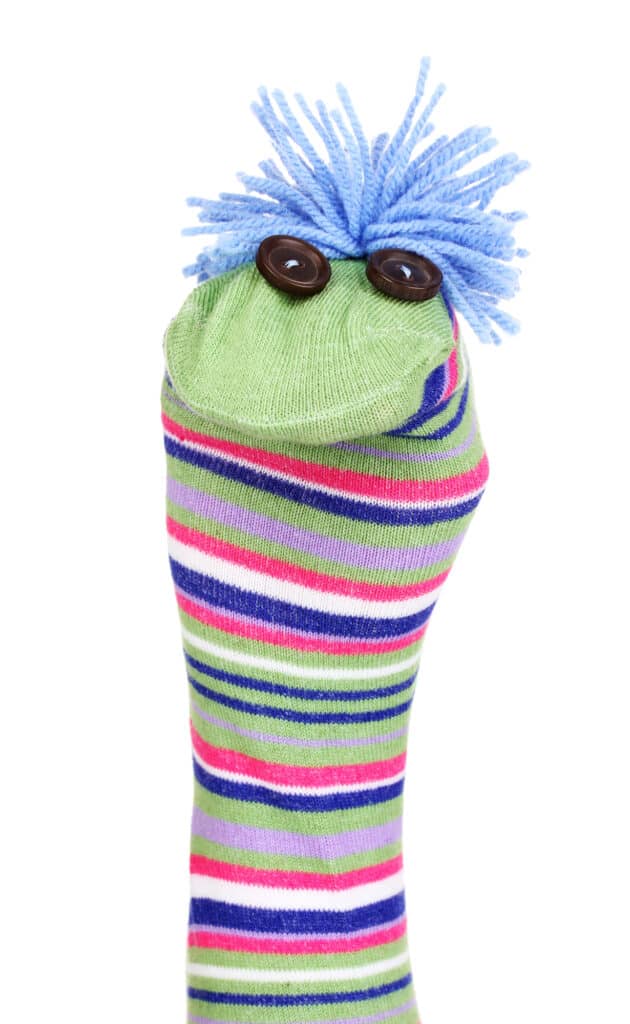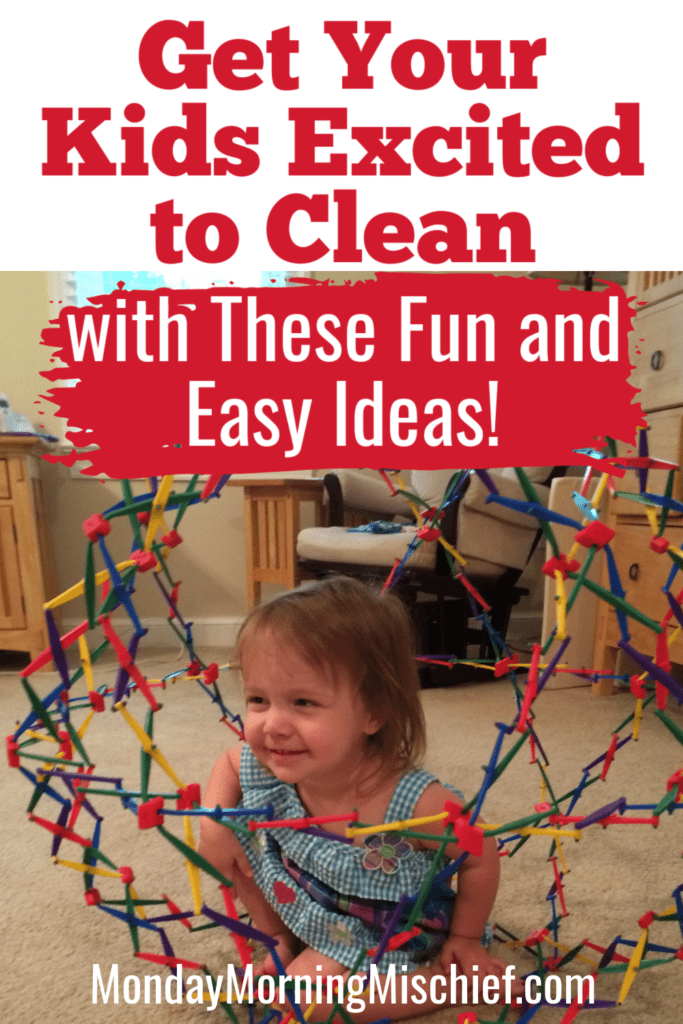Although I acknowledge that, like in my days in corporate America, I often find it quicker and simpler to clean up after my child than to add “get kids to clean up” to my never-ending list of battles, I recognize that this may not be the best approach.
In fact, child psychologists largely agree that teaching children to clean up after themselves is an important life skill that helps them develop responsibility and independence.

Some well-known child psychologists and authors who have written about this topic include:
- Dr. Laura Markham, author of “Peaceful Parent, Happy Kids,” emphasizes the importance of using positive reinforcement and making cleaning up a routine part of family life.
- Dr. Ross W. Greene, author of “The Explosive Child,” emphasizes the importance of involving children in the process and giving them a sense of ownership over cleaning up.
- Dr. Daniel J. Siegel and Tina Payne Bryson, authors of “The Whole-Brain Child,” emphasize using a collaborative approach and recognizing and managing children’s emotions during cleaning.
While I don’t believe that cleaning up after my child necessarily harms her, if you’re looking for effective strategies to encourage your own children to clean up, I have some proven techniques that are guaranteed to work.
At what age should a child clean up after themselves?
Children can start learning to clean up after themselves from a very young age, typically around 18-24 months old. At this age, they can understand simple instructions and start to learn to put away toys and other items after playing with them.
Teaching kids to clean up at an early age is like planting a seed. With the proper care and attention, it will grow into a healthy, responsible habit that will serve them well for a lifetime.
As children get older, they can take on more responsibility for cleaning up after themselves. For example, by the age of three or four, they can learn to put their dishes in the sink or dishwasher after a meal, and by age five or six, they can be taught to make their bed and keep their room tidy.
It is important to note that every child is different, and parents should adjust their expectations and responsibilities based on their child’s age, maturity level, and ability. Some children may be able to take on more responsibility at a younger age, while others may need more guidance and support.
Who says cleaning up has to be boring? Parents can make it a party! Turn it into a game, set a timer, or crank up the tunes to get those happy feet moving!
Let’s help our little ones become the superheroes of their own lives by teaching them to clean up after themselves! By doing so, they’ll gain some serious life skills and feel like the champions they truly are. Soon they’ll be soaring with independence and brimming with confidence.
Easy ways to get your child to clean up
Imagine a toy tornado ripping through your living room. Don’t worry, it’s not real, but it is what my child’s playtime looks like. Cleaning up is like solving a puzzle. Let’s put the pieces together and make it easy!
Turn it into a game
Turning cleaning into a game can be an excellent way to get kids to clean up after themselves. Here are some ideas to get started:
-
Race against the clock – Set a timer and challenge your child to see how quickly they can clean up their toys. Make it a competition to see if they can beat their previous time.
-
Treasure hunt – Hide small toys or objects around the room and have your child find them while cleaning up. It’s a fun way to keep them engaged and motivated.
-
Follow the leader – Play “follow the leader” while cleaning up. Take turns being the leader and showing how to clean up certain items.
-
Simon Says – Play “Simon Says” with cleaning commands. For example, “Simon Says pick up all the red blocks” or “Simon Says put away all the books.”
-
Roll the dice – Make a cleaning chart with different chores assigned to different numbers on a dice. Have your child roll the dice to see what chore they get to do.
Remember, the key is to make cleaning up fun and enjoyable for your child. By turning it into a game, you can help them develop life skills while having a great time.
Make it a race
Ready, set, go! It’s time to make cleaning up a race and turn it into a fun and exciting challenge. Kids love a good competition, so why not make cleaning up a game where the goal is to finish first? Set a timer and see who can pick up the most toys or put away the most clothes in a certain amount of time. Ensure the time limit is reasonable and not too long, so your kids won’t get bored or discouraged. And don’t forget to offer a prize for the winner – it could be something small like a sticker or a high-five.
Cleaning up a race is a great way to motivate your kids to tidy up their space.
To make it even more fun, you can turn cleaning up into a relay race. Divide the cleaning tasks into different stations and have your kids pass the baton to each other as they complete each task. For example, one child can be in charge of putting away toys, while another child takes care of dirty clothes. You can also add a few obstacles or challenges to make it more exciting, like jumping over pillows or crawling under blankets. The key is to keep the energy high and the atmosphere fun and playful.
You can make cleaning up a team sport if you have multiple kids. Divide your kids into teams and see who can clean up their space the fastest. Ensure each team member has a specific task to complete, and work together to complete the job. You can even add a few rules or challenges to make it more interesting, like blindfolding one team member or having them clean up with their non-dominant hand. The possibilities are endless, and the more creative you get, your kids will have fun.
Roleplay
Roleplaying is a fun way to get kids excited about cleaning up. You can pretend to be a team of superheroes on a mission to save the house from a messy disaster. Assign each child a superhero name and task, such as “Captain Clean” and “The Vacuum Avenger.”
Another idea is to pretend to be a group of chefs preparing for a big cooking competition. The kitchen needs to be spotless before they can start cooking. Have each child be in charge of a specific task, like wiping down counters or organizing the pantry.
You can also pretend to be pirates searching for treasure in a messy room. Give each child a treasure map with tasks to complete in different areas of the room. When they finish a task, they can collect a piece of the treasure map until they find the final treasure.
The possibilities for roleplaying are endless! Use your imagination and get your child involved in the planning process. They’ll be more excited about cleaning up if they’re part of the creative process.
Use puppets
Incorporating puppets is my favorite way to engage, connect and do so many things with my daughter. When I pretend puppets are playing with her, maybe telling her what to do and not me, she listens and has fun doing it!
When a puppet says, “Let’s play the clean up game,” my child is more likely to help and enjoy cleaning up.
So, if you want to get kids to clean up, I suggest using a puppet as your side kick and make it fun!

What to do when your child refuses to clean up
Sometimes, no matter what you do, it might feel impossible to get kids to clean up. Maybe they’re tired. Maybe they’re hungry. Maybe there’s seemingly no rhyme or reason.
I suggest cutting them some slack and offering grace. If it’s been a tough day (especially), showyour child some empathy. As adults, sometimes we don’t want to do something and you know what? A more “authoritative” person is usually not coming up to us demanding compliance.
Children are people, too, and deserve respect in how we want others to treat us.
Lead by example
Leading by example is a powerful tool for getting kids to clean up. Children often mimic what they see. So, if you want your child to clean up, start with yourself!
Make sure your own space is tidy and organized. When your child sees you putting away your things, they’re more likely to do the same. Plus, it sets an excellent example for them as they grow up.
But, it’s not just about cleaning up physical spaces. You can also lead by example when it comes to cleaning up your language. Use kind words and polite language when speaking to your child.
Children are sponges, and they pick up on everything. So, if you speak politely and kindly, your child will be likelier to do the same.
Finally, leading by example also means being patient and understanding. Sometimes, it takes time for children to learn how to clean up after themselves. But, with consistent effort and a positive attitude, they’ll get there eventually.
If you found value in this, I think you’d appreciate how to parent an argumentative child.

Leave a Reply